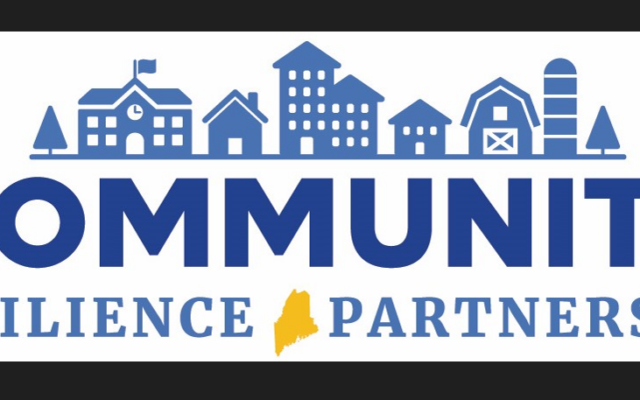
Gov. Mills announces $2.4M in grants to help prepare for climate effects, improve energy efficiency
AUGUSTA – Gov. Janet Mills announced $2.4 million in awards to 54 communities across Maine to protect infrastructure from damaging storms or rising sea levels, increase local planning capacity, and improve energy resilience and efficiency.
Awardees include Greenville, which received a $12,195 community action grant for the implementation of an emergency alert system, and Eastern Maine Development Corp. EMDC received a $62,494 service provider grant to assist Bradford, Corinna, Dexter, East Millinocket, and Guiford in setting priorities and enrolling in the Community Resilience Partnership.
The awards to Maine cities, towns, and tribal governments come from the Community Resilience Partnership, a program established by Mills in 2021 to help local communities undertake projects that increase resilience to climate effects and reduce greenhouse gas emissions.
Some 226 cities, towns, and tribal governments are participating, either as individual entities or in regional coalitions. All the communities receiving grants are first-time awardees of the partnership. To date, the program has awarded nearly $8.5 million for projects in over 150 communities across the state.
In May the supplemental budget signed by Mills included an additional $5 million for resilience grants from the partnership, to help 100 additional communities to participate. This investment followed unprecedented severe storms in December and January that caused an estimated $90 million damage to public infrastructure in Maine.
Of the awards announced, 50 percent are communities that have joined the partnership since
the governor announced the goal of helping another 100 communities in her State of the State address earlier this year. For an interactive map of communities awarded grants through the program, please visit the partnership’s website at https://www.maine.gov/future/climate/community-resilience-partnership/examples.
“While Maine communities continue to recover from recent devastating storms, it’s vital that we strengthen vital infrastructure for future severe storms, expected to become more frequent with climate change. These grants will help 54 Maine communities improve their resilience to intense storms and other impacts of climate change, reduce carbon emissions, and boost energy efficiency,” said Mills. “Since I unveiled the Community Resilience Partnership nearly three years ago, hundreds of cities and towns across the state have taken action to fight climate change and strengthen their communities. My administration will continue our collaborative work with communities across Maine to protect our state for future generations.”
“The storms of this past winter, and the past two years, have shown the increasing need for communities to take action to strengthen their infrastructure to withstand climate effects, and make climate investments and actions that reflect local priorities,” said Hannah Pingree and Melanie Loyzim, co-chairs of the Maine Climate Council. “The Community Resilience Partnership is now supporting 226 communities across Maine in this important work. We are grateful for the efforts of our communities, and the support of this program from Gov. Mills and the Legislature, to advance local and regional climate solutions.”
“Continuing municipal interest in the Community Resilience Partnership is not only evidence of the program’s success but also of the importance of the state/municipal partnership,” said Cathy Conlow, executive director of the Maine Municipal Association. “As designed, this partnership strikes the perfect balance between the state’s ability to access non-property tax revenue and provide technical assistance and local ingenuity and the ability to nimbly implement much needed resiliency building projects where they are most needed. The association joins municipal leaders across Maine in commending Gov. Mills and the Office of Policy Innovation and the Future for their ongoing investment in this program.”
Some communities in this round are supported by funding approved in the supplemental budget signed by Mills on May 9, and will receive grant funds after the budget legislation goes into effect on Aug. 9.
This award announcement comes in advance of the next meeting of the Maine Climate Council on Tuesday, June 18, at the Augusta Civic Center.
The council, a 39-member assembly of scientists, industry leaders, bipartisan local and state officials, and citizens created by Mills in 2019 and charged with developing and updating a comprehensive climate action plan for Maine.
Following an extensive public process, the council delivered its first four-year plan to prepare for and mitigate effects of climate change on Maine, “Maine Won’t Wait”, to Mills on Dec. 1, 2020.
By law, the council is now working to deliver an updated four-year climate plan by Dec. 1. During the meeting on June 18, the council was set to be presented with a series of draft climate strategies compiled by its expert working groups and task forces for potential inclusion in the climate plan update.
In May Mills also signed an Executive Order to establish a new commission that will develop the State of Maine’s first plan for long-term infrastructure resilience, following the two devastating winter storms and a record eight storm-related Federal disaster declarations in Maine over the past two years.
The 24-member commission will engage with communities, industries, and organizations across Maine to understand challenges following storms, identify and bridge gaps in resources like funding, financing, and insurance, how to improve the resilience of energy systems, propose new approaches to improve disaster recovery and response, and strengthen resilience supports at the state, regional, and local levels.
In the past legislative session, Mills proposed, and the Legislature enacted, as part of the supplemental budget $60 million in storm recovery funding – the single largest investment by any administration in Maine history.
For more information about available funding and supports for storm recovery, please visit the state’s flood resources and assistance hub, maine.gov/flood.